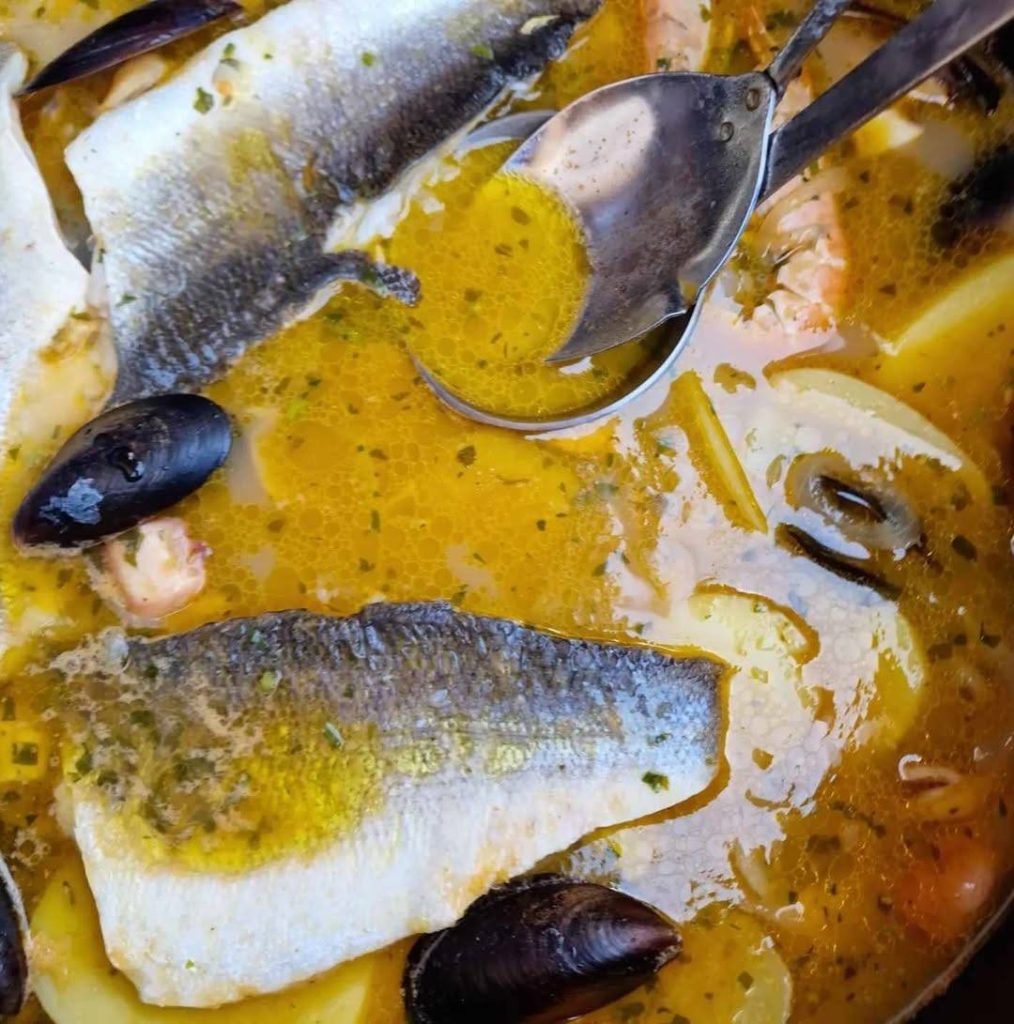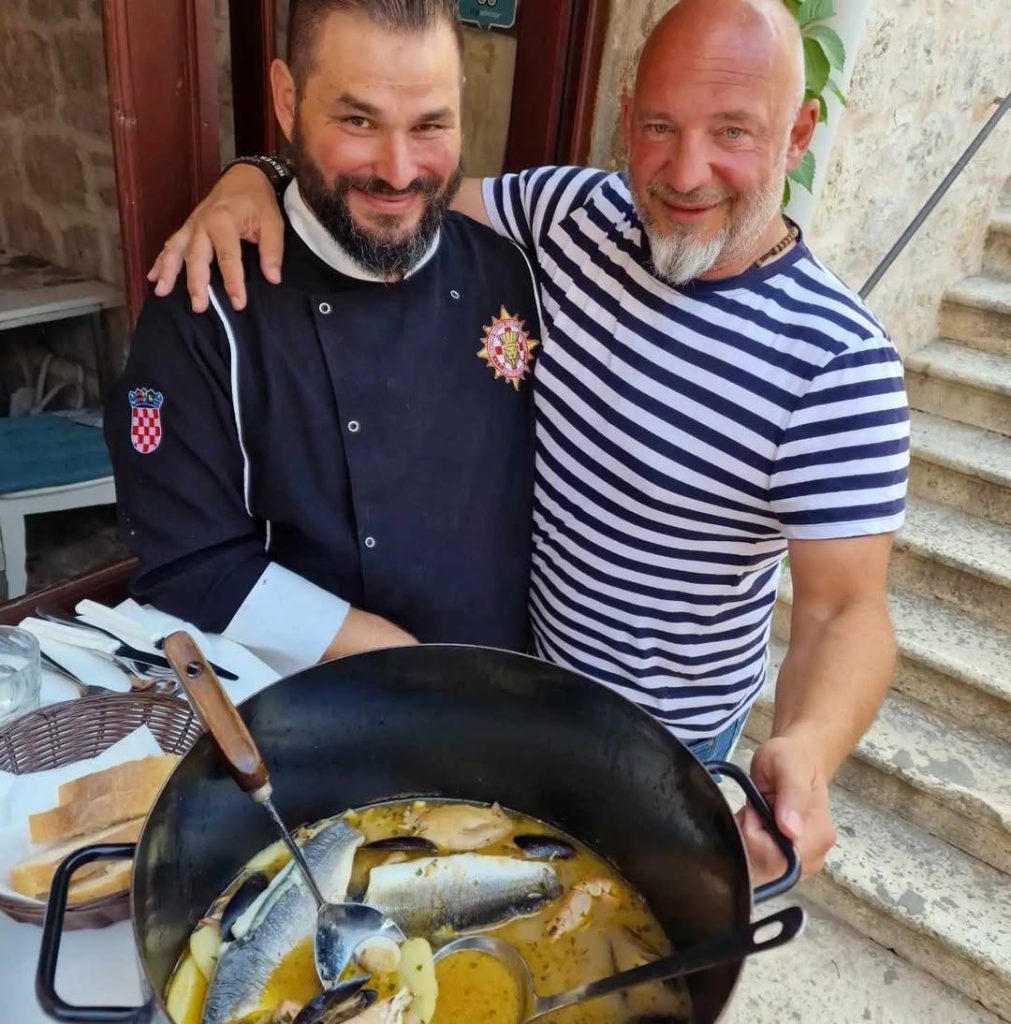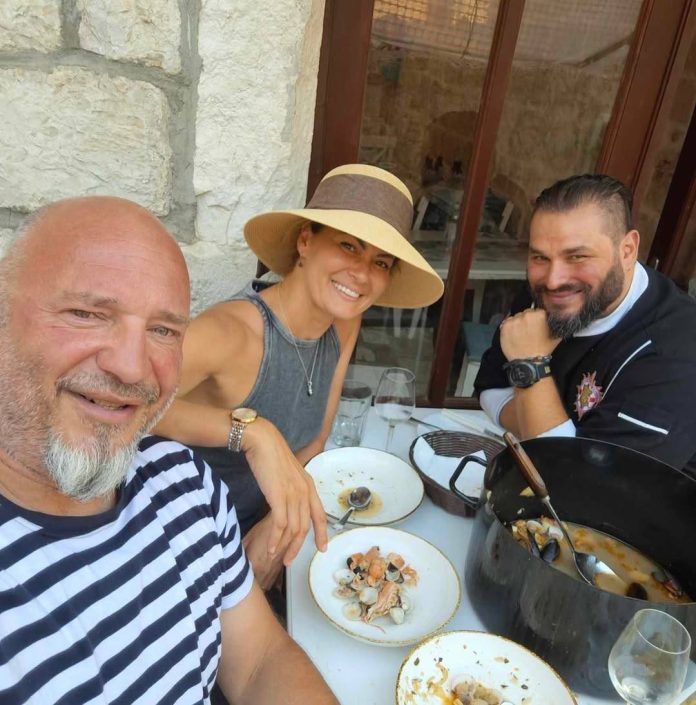There are meals that nourish the body — and there are those that feed memory. In Dalmatia, we call it forski pjat: not just food from the island of Hvar, but a phrase that evokes soul, tradition, and the rhythm of the sea. To sit at a stone table overlooking the waves, a glass of local wine in hand, and a steaming plate of gregada before you — that’s not lunch. That’s heritage.
What Is Gregada?
Gregada is one of the oldest known fish stews in the Adriatic. A humble dish made with white fish, potatoes, garlic, olive oil, and a splash of white wine, it’s slowly cooked in a single pot. But the real ingredient is time — not the minutes on the stove, but the centuries behind the recipe.
Every family has its version. Some add capers or tomatoes, others insist it must be monkfish or scorpionfish. What never changes is the principle: simple, fresh, honest.
In the fishing villages of Hvar, gregada was once made on open fires, eaten by hand, and served without pretense. It was a fisherman’s reward after a long day at sea, a celebration of the catch, and a quiet prayer to the gods of tide and time.

The Meal as Memory
I still remember the first time I had gregada that tasted like it came from the stories. It was in a friend’s courtyard in Stari Grad — a warm, sunlit lunch with no rush, no plans, no phone calls. Just good company.
This time, I was not alone. My wife Ira walked beside me through the cobbled streets of Hvar as we made our way to the family restaurant Casablanca. It’s run by my dear friend Ivo — a wizard of Dalmatian cuisine, a man who knows how to turn the sea into song. Ivo is more than a chef; he’s a keeper of flavors, a guardian of forgotten recipes.
He greeted us with a grin, a glass of prošek, and a pot already bubbling in the corner. As the scent of garlic and fish danced through the air, Ira picked up her camera — her way of remembering. We sat, laughed, and simply let the afternoon stretch, the way Dalmatians do when they know time is not an enemy but a companion.
The gregada arrived with no grand gesture — just warmth. The potatoes melted like childhood. The broth carried whispers. The fish? Honest, fresh, forgiving.

No Michelin star in the world could replace that moment. Not because of the fish, but because of the feeling — of being part of something ancient and alive. Of honoring a deeper tradition: that friendship and food deserve unhurried hours.
Beyond the Plate
To guide a tour through Dalmatia is to guide people not just through landscapes, but through flavors. When I include gregada on my Hvar storytelling tour, it’s not just to showcase local cuisine. It’s to offer a glimpse into identity.
I tell guests: you’re not just tasting fish — you’re tasting the rhythm of nets cast at dawn, the hands of grandmothers who knew no recipe books, the resilience of an island that learned how to survive with little but turned it into much.
And so forski pjat becomes more than a dish. It becomes a story — one that lingers long after the spoon rests and the sea breeze cools the table.
A Spoonful of Story
In every corner of Dalmatia, food and folklore walk hand in hand. You cannot tell the story of a place without tasting it.
So if you ever find yourself in a quiet bay on Hvar, and someone offers you gregada, don’t just eat it.
Ask them about it.
Who taught them? When did they last cook it? Who was missing at the table that day?
Because in Dalmatia, every spoon carries more than flavor. It carries the memory of someone who stirred it before you — and the unspoken promise that the story will go on

